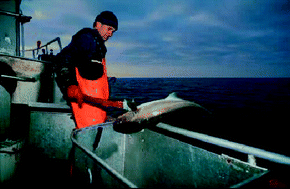POP exposure from fish liver consumption and risk of cancer—the Norwegian Women and Cancer Study
Abstract
The aim of the study was to investigate the hypothesis that consumption of fish liver increases cancer risk in humans due to increased intake of persistent organic pollutants (POPs). This study is based on data from the Norwegian Women and Cancer Study (NOWAC). The study has a prospective cohort design with questionnaire data from 64 285 randomly selected Norwegian women (aged 40–70 at baseline) and linkage to the Norwegian Cancer Registry. Cox proportional hazards regression was used to calculate risk ratios associated with consumption of fish liver and total cancer and cancer in breast, uterus, and colon. Fish liver consumption was, after adjusting for known risk factors, associated with a significant reduced risk for total cancer (RR = 0.92, 95%
We have concluded that in Norwegian women, fish liver consumption was not associated with an increased cancer risk in breast, uterus, or colon. In contrast, a decreased risk for total cancer was found.


 Please wait while we load your content...
Please wait while we load your content...